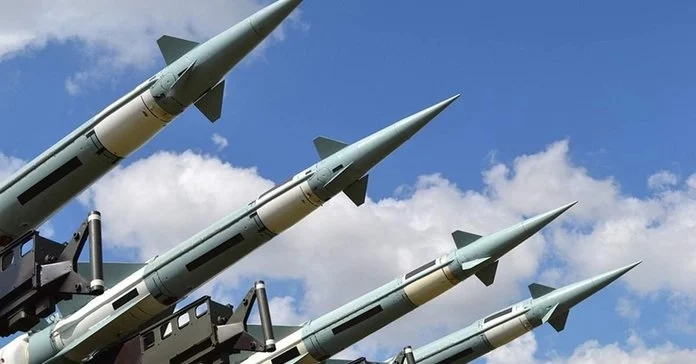Vandenberg Space Force Base (VSFB) announced on Thursday May 30 that it will conduct two test launches of unarmed LGM-30G Minuteman III intercontinental ballistic missiles (ICBM) during the first week of June; the tests will take place on the mornings of Tuesday and Thursday June 4 and 6. The missiles will be launched from the northern area of the VSFB, which is located 210 kilometers (130 miles) northwest of Los Angeles, between 12:01 a.m. and 6:01 a.m. on the test days.
The LGM-30G Minuteman III ICBMs have been in service since the 1970s and were slated to be replaced by a modernized replacement, the Sentinel ICBM, slated to enter service in the mid-2030s for which Congress has already received a funding request of $4.4 billion.
JOIN US ON TELEGRAM
Follow our coverage of the war on the @Kyivpost_official.
The development of the new missile has been delayed for undeclared causes meaning the latest Minuteman tests have taken on greater significance and are intended to demonstrate that the 50-year-old nuclear missiles remain fully functional assuring that US nuclear forces remain a ready and effective nuclear deterrent
Col. Mark Shoemaker, Space Launch Delta 30 commander said, “Test launches like these are critical in safeguarding the defense of our nation.”
The LGM-30G designation indicates its role and functionality: “L” shows it is silo launched, “G” means surface attack, “M” stands for guided missile, 30 shows it is the Minuteman series of missile and the second G shows it is the current version.

Romanian Pro-Kremlin Populist Barred from Contesting May Presidential Vote
The June 4 launch was originally scheduled for February but was postponed allowing for necessary infrastructure repairs at the test site. The second test was already scheduled for June 6 test launch “… so it made sense to conduct both of them while all the necessary personnel were on site,” Col. Chris Cruz, the 377th Test and Evaluation Group commander said. He said, “The launches were scheduled well in advance and have nothing to do with world events.”
A January article in Wall Street Journal cited two US senators who said US nuclear weapons were dangerously out of date. It said critical updates to the US arsenal “are underfunded and behind schedule. Congress and the White House must act quickly to solve these problems and prevent more from emerging.”
The VSFB announcement said that the US had provided advance notice of the teats launches as required by the Hague Code of Conduct against Ballistic Missile Proliferation and notified Russian authorities in advance in accordance with the bilateral agreements between the two nations.
A successful test launch was previously carried out in September 2023 but a second, in early November, had to be aborted and the Minuteman III missile destroyed due to an unidentified “anomaly” – which could refer to any unexpected event during a test flight. The cause of the failure is currently under investigation by a special commission, which includes representatives of relevant departments, will investigate the causes of the incident.
In total, the US has more than 400 Minuteman missiles, located in launch silos dispersed in Montana, Wyoming and North Dakota. Each one weighs 36 tons and carries three separate nuclear warheads. It is a three-stage missile with a range of distance, depending on the version, of between 9,500 and 12,000 kilometers (5,900 to 7,500 miles), reaching a maximum speed of 24,000 kph (15,000 mph).
You can also highlight the text and press Ctrl + Enter











